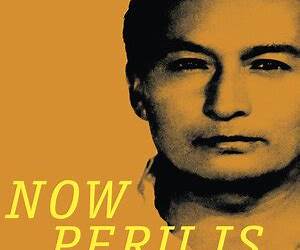Now Peru Is Mine: The Life and Times of a Campesino Activist (Narrating Native Histories) By Manuel Llamojha Mitma Paperback 0822362384 9780822362388 Now Peru Is Mine: The Life and Times of a Campesino Activist (Narrating Native Histories) Born in 1921, Manuel Llamojha Mitma became one of Perus most creative and inspiring indigenous political activists. Now Peru Is Mine combines extensive oral history interviews with archival research to chronicle his struggles for indigenous land rights and political inclusion as well as his fight against anti Indian racism. His compelling story—framed by Jaymie Patricia Heilmans historical contextualization—covers nearly eight decades, from the poverty of his youth and teaching himself to read, to becoming an internationally known activist. Llamojha also recounts his lifes tragedies, such as being forced to flee his home and the disappearance of his son during the war between the Shining Path and the government. His life gives insight into many key developments in Perus tumultuous twentieth century history, among them urbanization, poverty, racism, agrarian reform, political organizing, the demise of the hacienda system, and the Shining Path. The centrality of his embrace of his campesino identity forces a rethinking of how indigenous identity works inside Peru, while the implications of his activism broaden our understanding of political mobilization in Cold War Latin America.
Now you're mine book
Now Peru Is Mine The Life and Times of a Campesino Activist tells the harrowing story of Manuel Llamojha Mitma a campesino organizer activist from Ayacucho who struggled for justice and land rights for campesino communities in rural Peru el Per profundo Written as a testimonial with sections that detail historical context and archival research this collaboration between the scholar Jaymie Patricia Heilman and Manuel Llamojha Mitma is rarely seen in academic publications that seek to reach a broader audience Similar to Beyond the Shining Path Heilman masterfully weaves decades of complex history of agrarian struggles in rural Peru into a compelling narrative that tells the story through the lens of one person who influenced countless others Llamojha Mitma s incredible life as an activist sets a powerful background for major changes that Peru s countryside experienced ranging from the abuses by the gamonales in the hacienda system to the the weaknesses of the agrarian reform to the horrors of the armed conflict The book vividly chronicles his life through testimonials beginning with his early start in the countryside as he develops his passion for books and writing his travels across the world his tenacious organizing in Ayacucho despite threats imprisonment impoverishment unemployment exile the breakup of the hacienda system and the loss of his son during the armed conflict The closing chapter really stood out to me because it is centered on present day Llamojha Mitma as an elderly activist and his efforts to remain an active part of society Through his own words we learn about Mitma s perceptions on campesino identity how effective organizing is shaped and what it means to gain justice and equity for indigenous communities I am deeply inspired by this great man and and his immense commitment to social justice Another must read for the canon of Peruvian history and agrarian studies or really just for anyone who wants to be inspired English
Born in 1921 Manuel Llamojha Mitma became one of Peru s most creative and inspiring indigenous political activists Now Peru Is Mine combines extensive oral history interviews with archival research to chronicle his struggles for indigenous land rights and political inclusion as well as his fight against anti Indian racism His compelling story framed by Jaymie Patricia Heilman s historical contextualization covers nearly eight decades from the poverty of his youth and teaching himself to read to becoming an internationally known activist Llamojha also recounts his life s tragedies such as being forced to flee his home and the disappearance of his son during the war between the Shining Path and the government His life gives insight into many key developments in Peru s tumultuous twentieth century history among them urbanization poverty racism agrarian reform political organizing the demise of the hacienda system and the Shining Path The centrality of his embrace of his campesino identity forces a rethinking of how indigenous identity works inside Peru while the implications of his activism broaden our understanding of political mobilization in Cold War Latin America Now Peru Is Mine The Life and Times of a Campesino Activist Narrating Native Histories

.
 .
.